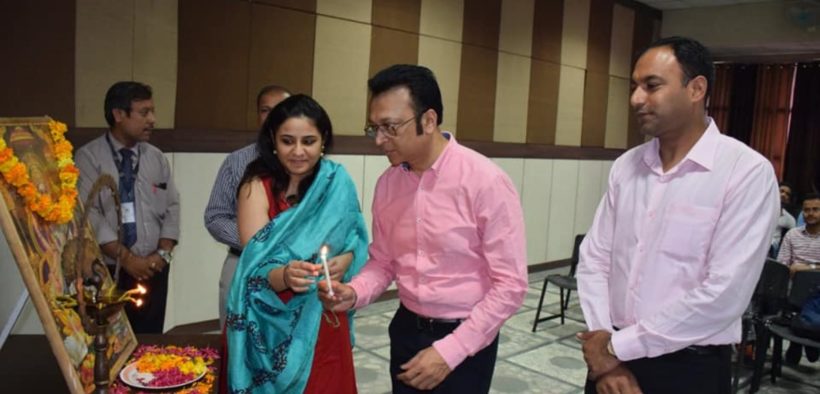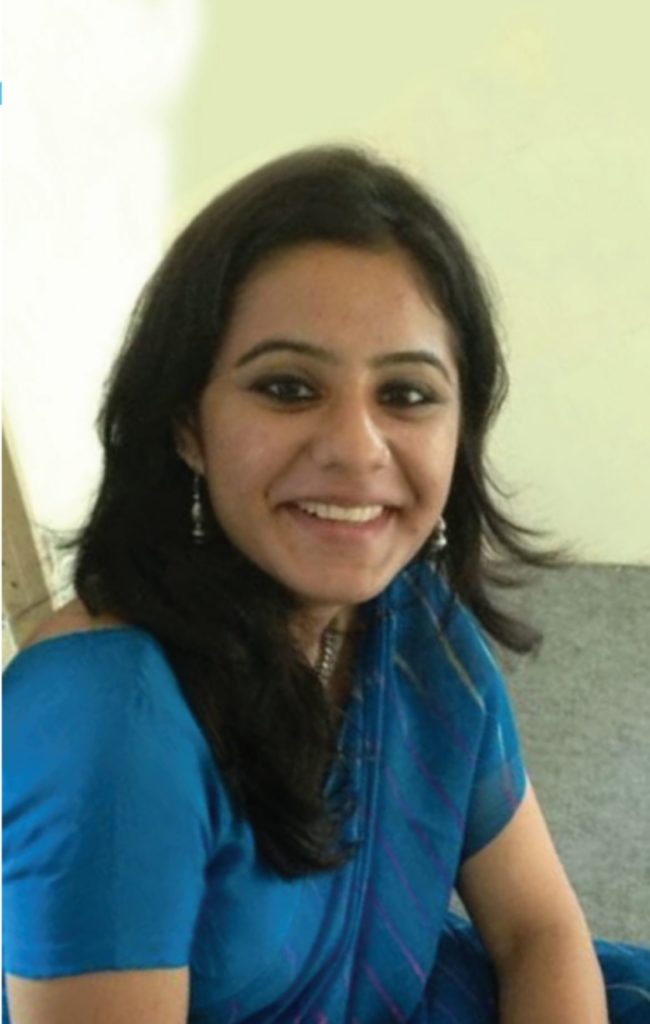ATTAC On Tobacco And Cancer

Dr Sumedha Kushwaha of ATTAC, who derives inspiration from everyday incidents, people and books, believes every moment has the potential to transform our lives.
By Aathika H Jain
Oral cancer is the most common cancers in India and tobacco is one of its leading causes. How do we deal with this reality?
The relation of tobacco and oral cancer is like that of the body and the soul. To actually deal with this reality, we need proper enforcement of the laws regarding the production, sale, marketing and advertising of tobacco products. Furthermore, a huge effort in creating awareness about the ill effects of tobacco and the signs and symptoms of oral cancer is needed. This can reduce the pressure on tertiary centres for the treatment of cancer.
What was the motivation behind the inception of your NGO, Aim to Terminate Tobacco and Cancer(ATTAC)?
While I was at dental school, as a part of one of the community-based camps, I saw a small child succumb to oral cancer due to tobacco abuse. In the following years, our daily OPD had numerous patients with similar problems. On conversing with them, I understood that either they were completely unaware of the grave ill effects of tobacco or they were having a hard time quitting because tobacco is such an addictive product. Hence, we started ATTAC, Aim to Terminate Tobacco and Cancer society, as young medical professionals trying to change this situation.
What were the struggles that you faced during the initial years?
What kept you going? The real fight is inwards. The internal struggle was that I soon realised that the problem of tobacco and cancer is humungous. I doubted if my small efforts would make any difference. No matter how hard I worked, I felt the problem remained the same. As a young girl, trying to run my own not-for-profit venture along with studies and a job was always a beautiful challenge. My parents kept pushing me to go further, friends were kind enough to offer help, teachers were there to guide us and God was most benevolent for choosing me for this task.

What has been the biggest challenge that you have faced in the last few years?
The biggest challenge that I faced during recent years was attaining a work-life balance. A social entrepreneurship fellowship I recently completed taught me about balancing life and work, teamwork, the importance of delegating responsibilities, better time management, as well as good and quick decision making. Also, I read a lot during these six months about how to manage multiple roles and multitasking. And I have developed a like-minded support system.
I Believe Every Moment, We Live, Has The Potential To Transform Our Lives Tremendously. My Family Has Always Been Very Supportive Of All My Activities.
Dr Sumedha Kushwaha, Founder, ATTAC
What are your awareness outreach programs?
When we started, my group of dentist friends would venture with our instruments, medicines and health education material to serve the local people in our areas. With this humble beginning, we would educate people about the ill effects of tobacco and symptoms of cancer, then screen patients for dental problems and oral pre-cancerous and cancerous lesions. Following this, we started to refer positive patients to dental colleges for further diagnostic tests like biopsies/ FNACs and treatment as the cost is very less. As demand increased, we realised that we needed a formal centre for tobacco cessation.
We tied up with the district government hospital and ESIC hospital, Noida. These hospitals provided us with infrastructure and we provided free manpower and counselling to patients. We held programmes in various colleges, schools, companies, slums, villages, suburbs, orphanages, old age homes, societies, etc. We also worked along with the government to provide training to various doctors, nurses, ASHAs and ANMs regarding tobacco. We conducted sensitisation sessions for ministers, the police, judges, etc.
Which areas across the country have you been able to cover in your awareness outreach programmes? Which areas did you find are the most unaware about the adverse effects of tobacco consumption?
We have worked primarily in Delhi, Uttar Pradesh, Haryana, Madhya Pradesh, Himachal Pradesh and Manipur. The rural population of India as such is at a greater risk as tobacco is a major part of their cultural and social practices, religious beliefs, medicinal myths and way to cope with boredom.
What are your future plans for ATTAC?
ATTAC has successfully completed more than 300 health-based activities, given health education to more than 30,000 people, screened more than 10,000 people and is successfully running three tobacco cessation centres in Noida and Delhi. We started as a team of 10 doctors, now we are a fleet of more than 200 volunteers spread across the world! We understand collaboration is our way forward. To pave our path to success, we plan to open low cost, sustainable and patient friendly tobacco cessation centres pan India along with various private and government doctors. We are also developing a mobile application for tobacco de-addiction.
How do you think we can increase the awareness of harmful effects of tobacco consumption?
Tobacco control is a multisectoral issue. Various ministries like health, agriculture, education, skill development and environment are involved. There is a need for intersector coordination for best results. The National Tobacco Control Programme run by the Ministry of Health and Family Welfare is the nodal programme to control tobacco. The Cigarette and Other Tobacco Products Act provides protection to educational institutions, minors, and regulates product sale and advertising.
Share some of your success stories.
My first case was a surgeon smoking more than 30 sticks/day. The nicotine present in cigarettes is a highly addictive substance. There is both psychological and physical addiction that happens. The physical symptoms take about 72 hours to wear off. However, when you understand the patient psychology, the smell, the feel of the hold of the stick, the circle of friends, association with chai/coffee breaks, driving, boredom, coping with sadness or elation are all related to smoking. It is important for us to make the patient realise his essential cigarettes and those which are not required. The doctor took about three months to become clean and is my biggest supporter till date. It’s important for a counsellor to be patient and persistent.
What does a typical day look like for you? How do you maintain work-life balance?
I wear different hats during the day, from a being a mom to a month-old son, a wife, a social worker, a dentist, to a full-time employee as the Head of Public Health for an Indo-American firm. I practice Buddhism to keep my sanity. I love to read and travel.
What keeps you going?
Inspiration comes from people, books, and day-to-day incidents. I believe every moment we live has the potential to transform our lives tremendously.
If there was an advice you could send out to young medical professionals looking to serve the society, what would it be?
“With great power comes great responsibility.” What greater power can be bestowed to humans than the power to heal another being? Keeping this in mind, young medical professionals looking to serve the population can try doing simple things like one hour OPD free in the week for poor patients, dispensing free drug samples to those who cannot afford buying medicines, participating in awareness talks to provide specialised medical advice at people’s doorstep or just ethical practice and appropriate prescription of pharma drugs like antibiotics is also a great thing to the humanity.
















